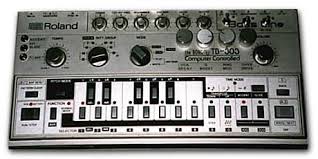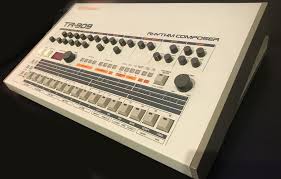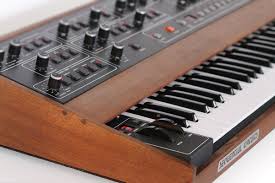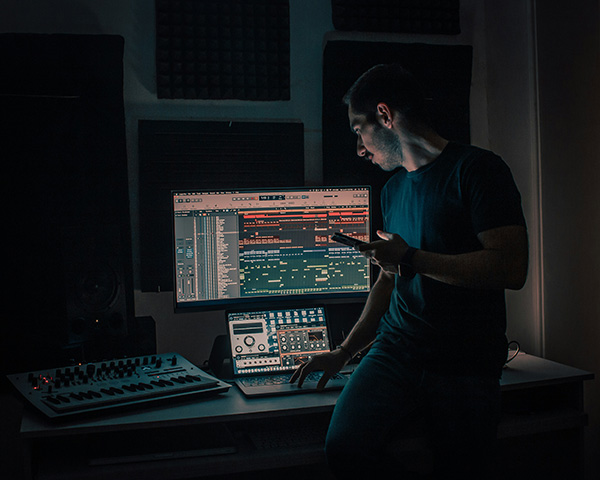Techno is an hypnotic and pulsating electronic genre characterized by its driving beats and futuristic soundscapes.
Subgenres of Techno
History of Techno
Famous Techno DJs / Producers
Famous Techno Audio Engineers
Production & Mixing Tips
Subgenres of Techno
Minimal Techno
Characterized by a stripped-down approach to sound design, minimal techno focuses on simplicity and repetition. Artists like Richie Hawtin and Ricardo Villalobos have pioneered this subgenre.
Acid Techno
This subgenre is known for its squelchy and trippy basslines produced by the Roland TB-303 synthesizer. DJ Pierre with Phuture is a key artist associated with acid techno.
Dub Techno
Combining elements of techno with dub music, this subgenre emphasizes atmospheric elements, reverbs, echos, and a delay-heavy approach to production. It offers a softer and more ambient take on techno.
Industrial Techno
With its roots in industrial music, this subgenre features harsh and aggressive sounds, heavy beats, and a darker atmosphere. It often incorporates distorted and abrasive elements into its production.
Hard Techno
Known for its aggressive tempo and heavy beats, hard techno is characterized by its high energy and endurance requirements. Artists like Chris Liebing and Jeff Mills have contributed to pushing this subgenre forward.
Tribal Techno
Tribal techno incorporates rhythmic and percussive elements inspired by tribal music. It often features organic and tribal-like sounds, creating a primal and hypnotic atmosphere.
Detroit Techno
Originating from Detroit, this subgenre is considered the birthplace of techno. It is characterized by its soulful and melodic elements, influenced by the city’s rich musical heritage. Artists like Juan Atkins, Derrick May, and Kevin Saunderson are key figures in Detroit techno.
History of Techno Music
Emerging in the 1980s in Detroit, Michigan, techno is a genre that has its roots deeply embedded in the city’s rich musical heritage. Influenced by the sounds of funk, electro, and synth-pop, African-American artists such as Juan Atkins, Derrick May, and Kevin Saunderson, collectively known as the Belleville Three, pioneered the creation of techno. They blended futuristic electronic sounds with the soulful and melodic elements of their surroundings, giving birth to a genre that would revolutionize the music scene.
Techno quickly gained popularity in Detroit’s underground club scene and began to spread its influence across the globe. Its driving beats, hypnotic rhythms, and futuristic soundscapes captivated audiences, and techno soon found its way into clubs and festivals worldwide. As the years went by, techno continued to evolve and diversify, giving rise to various subgenres such as minimal techno, acid techno, and dub techno. With the advent of digital technology, techno further transformed, pushing the boundaries of sound design and experimentation.
Today, techno remains a powerful force in electronic music, continuing to inspire and captivate listeners with its innovative and forward-thinking approach.

The Gear That Shaped Techno


Roland TB-303
The Roland TB-303 bassline synthesizer played a crucial role in the development of techno. Originally designed as a bass accompaniment for guitarists, it was adopted by electronic musicians who discovered its unique sound capabilities. The TB-303’s squelchy and resonant tones became iconic in acid techno, adding a distinctive and hypnotic character to the genre.


Roland TR-909
The Roland TR-909 drum machine is another influential piece of gear in the history of techno. Its punchy and booming drum sounds, including the iconic kick and snare, became synonymous with the genre. The TR-909’s ability to create driving rhythms and its distinctive sound palette contributed to the energetic and dancefloor-oriented nature of techno.


Sequential Circuits Prophet-5
The Sequential Circuits Prophet-5 polyphonic synthesizer played a significant role in shaping the sound of early techno. Its warm and rich analog sound, along with its versatile modulation capabilities, allowed producers to create lush pads, evolving textures, and melodic elements that became integral to the genre. The Prophet-5’s sonic range and expressive capabilities made it a staple in techno production during its formative years.


Famous Techno DJs
In the 1980s, Derrick May and Laurent Garnier emerged as influential techno DJs. May, known as one of the founding fathers of techno, pioneered the use of drum machines and synthesized sounds. Garnier, on the other hand, seamlessly merged techno, house, and other electronic genres, creating a distinct and innovative sound.
The 1990s saw the rise of Richie Hawtin, Carl Craig, and Jeff Mills. Hawtin’s minimalist approach to techno and innovative production techniques pushed the genre’s boundaries. Craig’s experimental soundscapes and ability to blend genres set him apart, while Mills captivated audiences with his skillful mixing and captivating techno journeys.
In the 2000s, Carl Cox, Adam Beyer, and Chris Liebing made significant contributions. Cox’s high-energy sets and versatility solidified his status as an icon in the techno scene. Beyer’s powerful sound and founding of Drumcode shaped the genre’s direction, and Liebing’s dark and intense techno sound earned him respect among enthusiasts.
The 2010s introduced Amelie Lens, Charlotte de Witte, and Nina Kraviz. Lens’s energetic sets and atmospheric sound captivated audiences, while de Witte’s hypnotic and melodic techno made her a prominent figure. Kraviz, known for her unique blend of techno, acid house, and experimental sounds, pushed boundaries and explored new sonic territories as the founder of the label трип.
These DJs, spanning different decades, have influenced and shaped the techno genre with their innovative sounds, technical skills, and dedication to pushing boundaries.
Three Sonic Qualities of Techno
Rhythm and Percussion
Techno is known for its driving, repetitive 4/4 beat, characterized by a steady bass drum on each quarter note pulse. The percussion elements in techno are often crisp, precise, and heavily layered, creating a sense of energy and momentum. Drum machines and electronic instruments are commonly used to produce the rhythmic foundation of techno tracks.
Synthetic Sounds and Textures
Techno embraces the use of synthesizers and electronic instruments to create a wide range of sonic textures. From pulsing basslines to soaring lead melodies, synthesizers play a crucial role in shaping the sound of techno. Producers often experiment with different timbres and effects to create unique and futuristic sounds that define the genre.
Atmosphere and Soundscapes
Techno frequently incorporates atmospheric elements and soundscapes to create a sense of depth and immersion. Field recordings, such as rain or crowd noise, are sometimes used to add layers of atmosphere to tracks. This attention to creating a sonic environment contributes to the hypnotic and immersive nature of techno music.
Famous Techno Audio Engineers
When it comes to famous techno audio engineers, there are several notable figures who have made significant contributions to the genre. These engineers have played a crucial role in shaping the sound and quality of techno music through their mixing and mastering skills. Here are a few examples:
Bram Fidder is a world-class mastering engineer known for his expertise in EDM and techno. He has worked with numerous artists and has the ability to make music impactful and powerful.
Jamal Ruhe is an experienced mastering and mixing engineer who has worked on music and audio for hundreds of artists. His diverse background and skills have made him a sought-after engineer in the industry.
Sefi Carmel is a specialized electronic music and techno mastering engineer. With his trained ears and top-notch tools, he can enhance the audio quality of techno tracks, making them club-ready and powerful.
These are just a few examples of the talented audio engineers who have made their mark in the techno scene. Their expertise and dedication to their craft have contributed to the overall sound and quality of techno music.


Three Mixing & Mastering Tips for Hip Hop
Focus on the Low-End
Techno music relies heavily on a powerful and well-defined low-end. Pay attention to the kick drum and bass elements, ensuring they are punchy, tight, and well-balanced. Use EQ and compression techniques to shape the low-end and create a solid foundation for the track.
Pay Attention to Stereo Imaging
Techno tracks often benefit from a wide and immersive stereo image. Experiment with panning and stereo enhancement techniques to create a sense of space and depth in the mix. However, be cautious not to overdo it, as an overly wide mix can become fatiguing to listen to.
Master with Precision and Clarity
During the mastering stage, aim for a clear and dynamic sound that translates well across different playback systems. Use EQ, compression, and limiting to enhance the overall balance, clarity, and loudness of the track. Avoid excessive loudness or clipping, as it can degrade the audio quality and introduce distortion.
Why Hire a Professional Audio Engineer or Producer for Mixing and Mastering Techno?
Here are five reasons why hiring a professional audio engineer or producer for mixing and mastering techno is beneficial:
Expertise in the genre
Professional audio engineers and producers specializing in techno have a deep understanding of the genre’s unique characteristics, including its sound design, arrangement, and mixing techniques. They can bring out the best in your techno tracks and ensure they meet industry standards.
Polished and professional sound
A professional audio engineer or producer can make your techno tracks sound clear, balanced, and polished. They have the skills and experience to enhance the sonic elements of your music, making it stand out and compete with other professionally produced tracks.
Access to industry-standard equipment and software
Professional audio engineers and producers have access to high-quality equipment and software specifically designed for mixing and mastering. They can utilize advanced tools and techniques to achieve the desired sound for your techno tracks.
Objective perspective
When you work with a professional audio engineer or producer, you benefit from their objective perspective. They can provide valuable feedback and suggestions to improve your tracks, ensuring they sound their best across different playback systems and environments.
Time and energy savings
Mixing and mastering can be time-consuming and require a significant amount of technical knowledge. By hiring a professional, you can save time and focus on other aspects of your music production while leaving the technical intricacies to an expert.